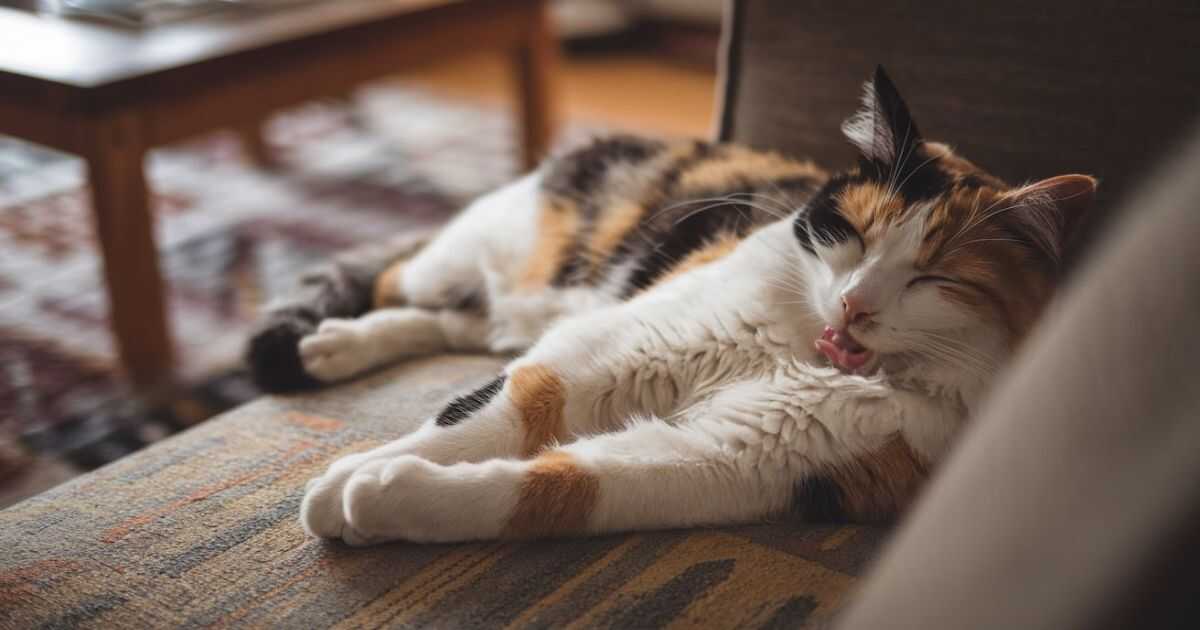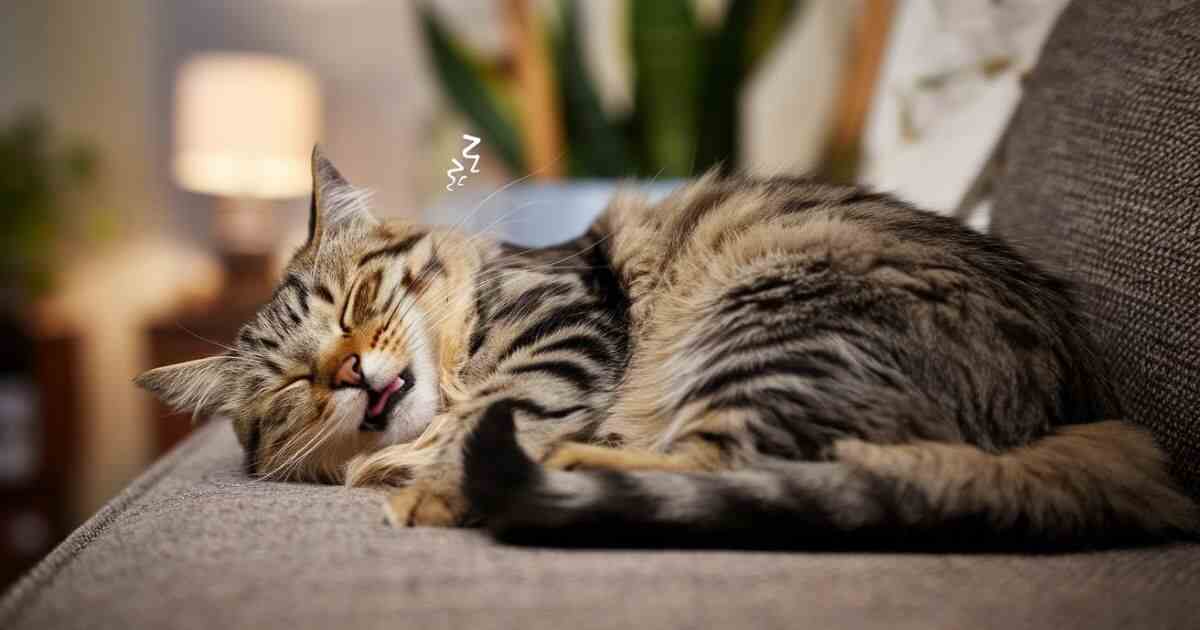Do Cats Snore? Understanding the Feline Sleep Phenomenon
Cats are also famously quirky things. Everyone has heard of a cat owner telling stories about their feline friend, so they can expect cats to snore like dogs. The simple response is that cats do snore. But, the why behind this can vary greatly. In this piece, we delve into why your cat might be snoring when it can signal health complications and how to keep her healthy and happy.

What is Snoring?
Snoring only happens when there is some airway blockage that creates a vibrating noise as those throat tissues rub against one another. And it can also occur in you, or put differently – even among cats. It can vary from a mild purring sound to loud rasping snores.
Why Do Cats Snore?
For most of those cases, as long as you know they exist and can take notice of them easily, you should be just fine… with a snoring cat.
1. Anatomy and Breed
Snoring is usually common in cat breeds with an anatomical structure prone to the problem. As I explained above, brachycephalic breeds are a common cause of snoring as well such as the Persian and Himalayan cat because they have shortened noses so this leads to shortening hypophysis. These dogs have something called brachycephalic respiratory syndrome, which can cause their airways to be obstructed.
2. Sleeping Position
Cats, like people can snore if they lie in a certain position during sleep. This position may lead to temporary airway obstruction, resulting in snoring from your cat. Quite frequently, shifting positions can decrease the snoring.
3. Weight and Obesity
Obese cats are more likely to snore as extra fat can collect in the throat, obstructing the airway. For example, making your cat maintain a healthy weight or losing some more pounds if necessary by providing the right amount of food and exercise will decrease snoring.
4. Respiratory Infections
Cats are prone to developing upper respiratory infections, which can lead to snoring. This inflammation and congestion in the nasal passages caused by these infections would obstruct airflow through them temporarily. Respiratory infection symptoms: sneeze, cough, and nasal secretion.
5. Allergies
The truth is cats can have allergies in significance to human beings. Nasal congestion due to allergens like pollen, dust, and mold can prevent breathing (or at least partially) through the nose; this causes you to breathe from your mouth more frequently which in turn leads to snoring. Identifying and Modifying Allergens Make a Difference.
6. Nasal Obstructions
Other causes of snoring: anything that obstructs the nasal passages — foreign objects, polyps, or tumors. If your cat is exhibiting more symptoms along with the snoring like nasal discharge, and trouble breathing, or has noted a noticeable change in appetite take him to see his veterinarian just to be sure.
7. Age
As your cat gets older, it may become a snorer. Conditions that can cause a cat to snore are more likely in older cats e.g. obesity or respiratory problems but any age of cats may be affected.
How To Know When You Should Worry About Cat Snoring
However, while rare snoring is usually of little concern several symptoms signalling you should head on over to the vet include:
- Sudden Onset of Snoring: If your cat never used to snore but suddenly does, it might mean that there is something else going on inside their body and a check-up would be necessary.
- Changes in Behavior: if your cat is snoring and there has been a change in his behavior, such as lethargy loss of appetite, or breathing disturbance you should consult with the veterinarian.
- Consistent Snoring: Louder, ongoing snore therefore it generally does not lend support itself very well to simple sleep position or weight management techniques and will need a Veterinary assessment.
- Other Symptoms: If your cat is coughing or sneezing, has nasal discharge (usually clear initially), difficulty breathing with respiratory rate >45 breaths/min at rest.
How to Help Your Snoring Cat
If your cat’s snoring is only mild and isn’t associated with any other visible symptoms here are some steps you can take to help potentially reduce the severity of it.
1. Maintain a Healthy Weight
Feed your cat high-quality food, pay attention to the amount you feed her – and get off that couch once in a while. This may aid in decreasing the dumbs which can lead to snoring.
2. Monitor Sleeping Positions
Monitor the different positions your cat sleeps in and move them if you hear snoring. Also, make sure you offer them a supportive and cozy bed.
3. Reduce Allergens
Ensure to keep a dust, mold, and other allergen-free home as much as practically possible. Washing your cat’s bedding weekly and using regular vacuum cleaning all around the home should be an effective measure to control this trigger factor.
4. Regular Vet Check-ups
Early detection of any potential health issues – through regular veterinary check-ups. If your cat’s snoring is a constant occurrence, or if it comes with other symptoms as well — then make sure to see the vet.
5. Humidifiers
This may help to decrease nasal congestion and snoring in cats, by making sure that the air inside your house is never too dry.
Do cats snore while sleeping?
Yes, cats can snore while sleeping just like humans. Most of the time, snoring takes place when your breathing while you sleep is partially obstructed most likely if there are loose muscles or excess tissue. Although in general cats have shorter and straighter airways than humans, which promotes less vibration (more snoring…), being overweight contributes that to happening or the breed type … even some medical conditions underlay can also bring it up. If you perceive your cat dozing strangely, frequently, or with heavy snoring manifestation should still take a vet help visit to confirm if they experiencing any health problems.
Is my cat snoring or wheezing?
It is difficult for an owner to differentiate what we hear as “wheezing” or snoring in cats, but wheezing has a few hintsères. All sound results from vibrations in the throat or nasal passages and snoring is usually a low, rhythmic form of it. Wheezing, meanwhile is about a narrow airway and results in being unable to breathe easily or properly. When a cat pan when anyplace it sins wheezing and that too if it does then consult your vet as soon as possible Wheezing also is a sign that something may be set up with breathing, which is needed for every living creature.
Conclusion
So cat snoring during sleep (especially deep sleep) is often a natural—and non-threatening—habit. While in some cases (such as pregnancy) swelling is normal, it’s something you should not ignore and if present warrant a trip to the doctor, and here are a few potential reasons why. You just keep them on their toes by staying healthy, and the rest follows along in a happy kitty life. If you are ever worried about your cat snoring, then do not hesitate to get advice from a vet.
Knowing the root causes of your cat’s snoring will enable you to give adequate care and charity to our furry friends. From changing how they sleep, and maintaining suitable weight levels to checking for medical conditions some measures can be taken for your cat’s health. Keep in mind, that a little snoring is often nothing to be concerned with but knowledge and vigilance can change the game for your cat!
I hope that this article helps you know more about why cats snore and how to keep your feline friend in perfect health. If you have any other questions or need help, feel free to ask.
FAQs | Do Cats Snore? Understanding the Feline Sleep Phenomenon
Q1. Should I be worried that my cat snores?
A: A cat normally will sleep the majority of its life and snoring occurs naturally with some cats more than others, but sometimes an underlying health issue that manifests as excessive or frequent can cause a part to your feline’s fruity symphony! Lifestyle also factors into these as shinier things out there such as obesity, allergies, and receitheratory infections.
If you are concerned about your cat’s snoring, it is always best to take them to the vet for a check-up of some sort. They also may be able to diagnose an underlying health condition and provide the appropriate treatment for you. However, for the most part, mild snoring in cats is simply a normal part of their sleep cycle.
Q2. When my cat breathes, it sounds like snoring.?
A: If your feline friend sounds like they are snoring when they breathe, this may be what that sound indicates. Still, other causes to be aware of include allergies, respiratory infections, and medical conditions. In case you are worried about your cat’s respiratory system, it is recommended to speak with a vet for the proper analysis. They will be able to diagnose the root cause and provide appropriate treatment where applicable.
Q3. Do cats snore when they’re happy?
A: However, purring is not a cause of contentment and has no direct link to happiness in cats. Physical explanation — The most common cause of snoring has to do with the alignment of your body. The cat purring and snoring are not directly party to each other; a cat could be purring or content while it is also snoring. If your cat snores a lot or too much you may want to see a vet to make sure that there are no health issues involved.
Q4. What breed of cat snores?
A: Though all cats can snore, some breeds are much more likely to do so because they may have physical characteristics that predispose them or perhaps even genetic tendencies. For instance, breeds with short squished faces like Persians or Himalayans are prone to snore because of stunted airways.
Also, other breeds that are naturally heavier than others like the British Shorthair or Maine Coon can be more likely to snore. But, what you have to keep in mind is that these patterns are only trends, and not all cats belonging to this breed will snore.
